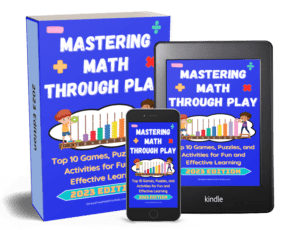What is the key to reducing math test anxiety? At Stress Free Math For Kids, our mission is to eliminate math anxiety in kids, parents, teachers, and tutors. However, we know that state tests can bring out the worst of it in everyone. Here are some real quotes I heard from real kids after taking their “practice test” a couple of weeks ago.
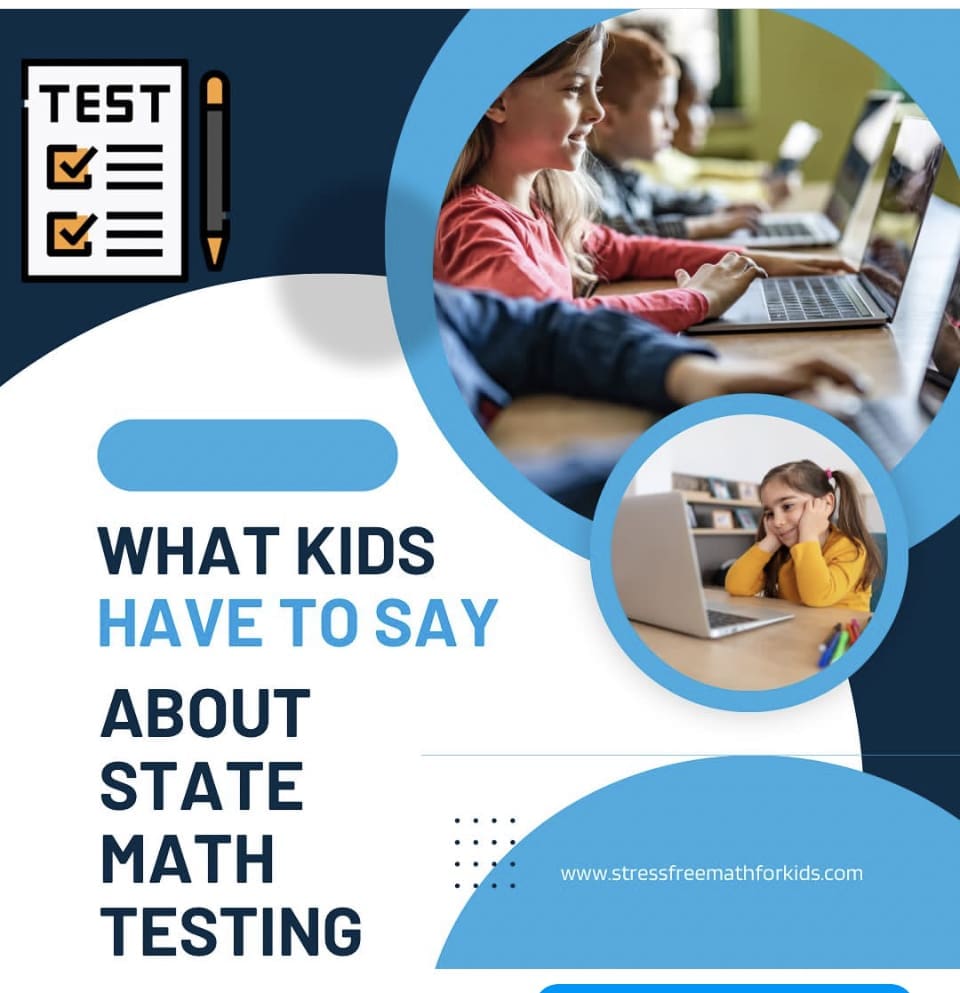
- My mind flies into the air. There are too many problems and I feel so stressed. I start forgetting what I learned. I even start forgetting my name. I feel so stressed I feel dizzy. (4th grade boy)
- I feel rushed and stressed. Then I don’t even know what 1 + 1 is anymore. (4th grade girl)
- I feel like a failure and it makes me feel sad. (4th grade girl)
- I rushed because the time was over and everyone else was done. I felt scared. (3rd grade girl)
How do we help these kids?
Keep tests in perspective
A mom recently told me her 4th grader was the youngest of a large family. “I never remember my other kids being so stressed out in elementary school about testing, or even knowing if they were “approaching,” “meeting,” or “mastering,” she said. Her daughter was a very strong student. Yet she still got an upset stomach and cried every time there was a testing day.
It is natural that the stress that teachers feel around having their students do well on tests gets passed down to the kids. However, until we can change the politics of testing (and the multi million dollar contracts with test publishers, a rant of mine for another time,) we have to make sure we are not contributing to kids associating their test score with their value. The pressure backfires as the quotes above show. Kids have so much anxiety they start forgetting what they already know, or second guessing themselves.
I have a few math mantras that my students hear me say multiple times throughout the year. These include “math is all about patterns,” “Big numbers work the same way small numbers do,” (I actually have a whole post about them here if you want to read it.)
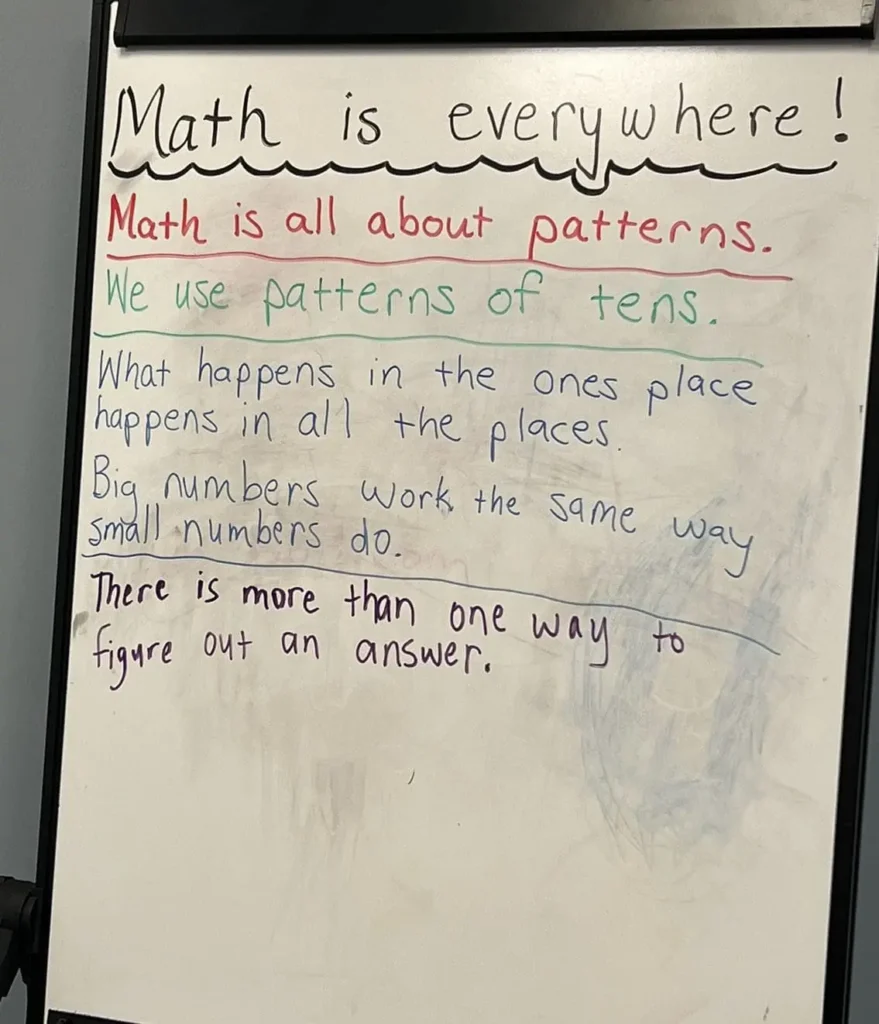
One of the most important things I tell the kids though is that “anything is easy if you know how to do it.” Many students see math as the skill you are magically either “good at” or “bad at” and they associate it with being smart. Thus we have kids like the 4th grade girl quoted above who say things like “I feel like a failure.”
As soon as she said that to me, I asked her “Does not doing well on a test make YOU a failure?” I tell my students that more important than any math I will ever teach them is the idea that their brains will believe whatever they constantly tell themselves. Words have power and we don’t say negative things about ourselves or other people. We tell ourselves “I am smart and I can do hard things.” And my value as a person has NOTHING to do with how well I do on any test. I could miss every single question on a test and *I* would not be a failure.
It is so important that teachers and parents are very clear with kids that all a test does is show:
- Can you understand what the question is asking you?
- Do you have enough knowledge and practice to solve the problem?
For the rest of this post I will address how to help kids with both parts of this.
Explicitly teach both problem solving and test taking strategies.
Practice practice practice using scratch paper for an online test
Have the kids actually number the paper and actually show work for each problem. They could also write a sentence/draw a model telling how they got the answer. On your practice tests this will help you identify where they are getting off. On their real test it stops them from rushing through and just clicking things to get done.
Practice how to write out your own multiplication chart using patterns of multiples. Have students make one on their scratch paper.
I often recommend giving students graph paper as scratch paper. It helps keep numbers lined up. This is allowable on Texas STAAR; of course check your own state requirements.
Practice the format of the test in physical ways
Movement helps with retention. For example, write things on sentence strips and have kids physically move them into categories.
Also, use whiteboards for daily practice. It has been proven to decrease fear of making mistakes and increase student willingness to take risks. Read Building Thinking Classrooms (my post about it is here) for many benefits of students standing and collaborating using vertical whiteboards.
If in doubt draw it out
Teach students to draw what is happening in the problem. If your curriculum doesn’t use bar models, teach them. They are SO helpful.
Read the full question!
It seems obvious but you wouldn’t believe how many kids don’t do this. As an interventionist and as a private tutor, I work closely with students and can observe why they are missing problems. The most common reason of all is that they didn’t fully read the question. I will even see them using strategies such as CUBES, but jumping straight to circling, underlining and boxing without reading! There are so many times I have seen a student do correct calculations but not answer what was actually asked.
Teach kids to identify the question. Then, when they get an answer, CHECK to make sure it is the answer to the question. One third grader (who moved from intervention to being predicted to master the test) told me “My mom told me to read every question 2 or 3 times and pay attention to what the question is asking.”
Often kids get stuck on unfamiliar words, especially names. It seems like tests are trying to show diversity, which is great, but they use names kids are not able to read and pronounce, and I see kids getting stuck on them. I tell them all the time “The person’s name doesn’t matter, just call them by the first initial and move on.”
Vocabulary is another topic altogether which I will address in the next section.
Break larger problems down into steps and check each step as you go.
There’s not much worse than working all the way through a multistep problem and then realizing you made a minor error at the beginning. If you are adding a long list of numbers, add them 2 or 3 at a time and check as you go. On a word problem with several steps this can save a lot of frustration.
Evaluate your answer
My other issue with CUBES the way I often see it taught is that it misses the most important step in problem solving. Solve should not be the final step! Evaluate your answer needs to be the final step. Does the number you got make sense? Often a student has made a very minor mistake (such as putting a decimal in the wrong place or missing a place holder zero when multiplying large numbers) that makes a HUGE difference in the answer. However they can catch it by evaluating whether their answer makes sense.
Play test detective
With multiple choice question practice I love to have the kids play “test detective” and catch where the test writers “try to be tricky.” It seems obvious to us but it’s a revelation to kids that writing test questions and answers is someone’s job, and they have to come up with answers that kids will choose. Why did they pick the answers they did? Maybe on one you add instead of subtract, or the place value is off. I teach them to look for the differences in the possible answers and eliminate the ones that can’t possibly be right.
Don’t get stuck!
Teach kids that when they have a problem they don’t understand to go on and do something they know how to do. As one third grader told me, “this gets my brain warmed up again.”
Review and teach key vocabulary
Many, many low kids especially English language learners miss questions because they don’t understand the wording. Research has shown that “Mathematics presents challenging reading because this content area has more concepts per word, per sentence, and per paragraph than any other area.” (Harmon, Hedrick, & Wood, 2005, p. 266).It always surprises me what vocabulary they don’t understand. We now play a lot of vocabulary games, make vocabulary notebooks and charts, and more. For my full post on teaching math vocabulary, click here.
Practice in engaging ways
The key to ANYTHING is practice! The more practice kids get the better they will perform. But we don’t want to drown them in worksheets. In fact that can have the opposite result where kids are so burnt out and have such a negative attitude that they don’t even care how they do.
If you have been around my site or Instagram you know my primary method of practice is math games. I love the way Peggy Kaye puts it in Games For Math:
“Games put children in exactly the right frame of mind for learning difficult things. Children relax when they play — and they concentrate. They don’t mind repeating certain facts or procedures over and over, if repetition is part of the game.”
I get games that are actually enjoyable. I teach them to small groups, and let kids have time to play them whenever we can. Success (which happens quite often) is that the students think the game is so fun that they ask their parents to buy it and they play it at home.
Here are some other resources for engaging practice:
Denise Gaskins (Let’s Play Math) Best Free Math Games
Will Teach for Tacos’ 10 day end of year math review FREE for teachers of grades 3-5. I will be personally using this with my intervention students.
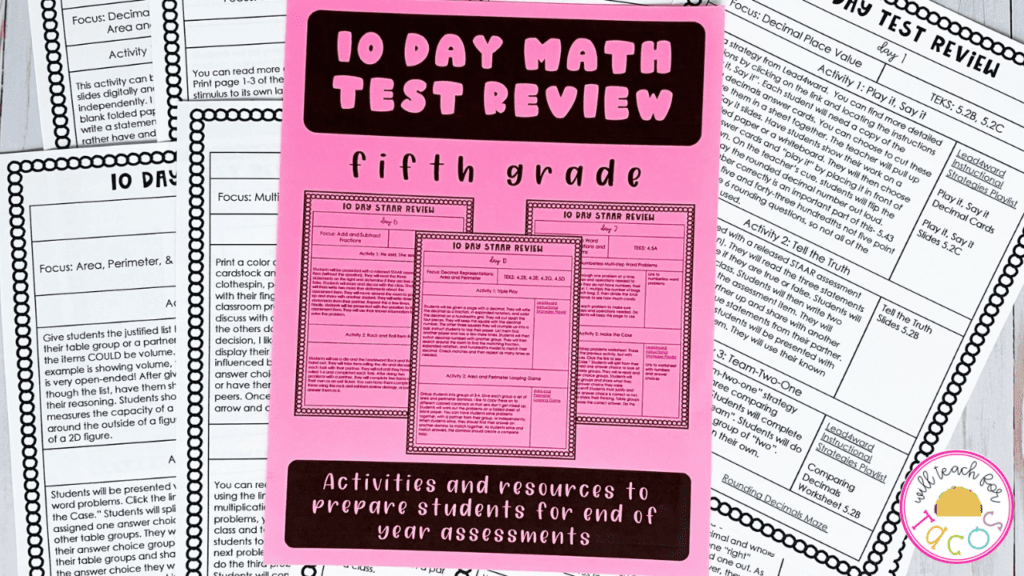
Digital Math Games– self checking, ad free, digital practice games for 3rd-6th grade math standards (this does have a small cost after a free trial period but you can use one log in for your whole class)

I do have students whose parents provide incentives for practice. I think this is great if the practice time is being rewarded rather than the test results.
If You Have a Perfectionist Child
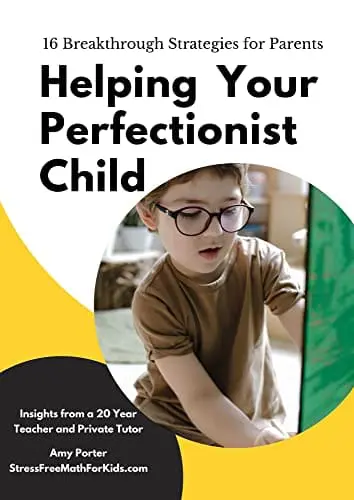
The strategies listed above are helpful for all children in reducing math test anxiety, but if you have a child who struggles with perfectionism, I have written a whole book for you! Here is my post that gives you a summary of the ideas and a link to get the book if you are interested.



